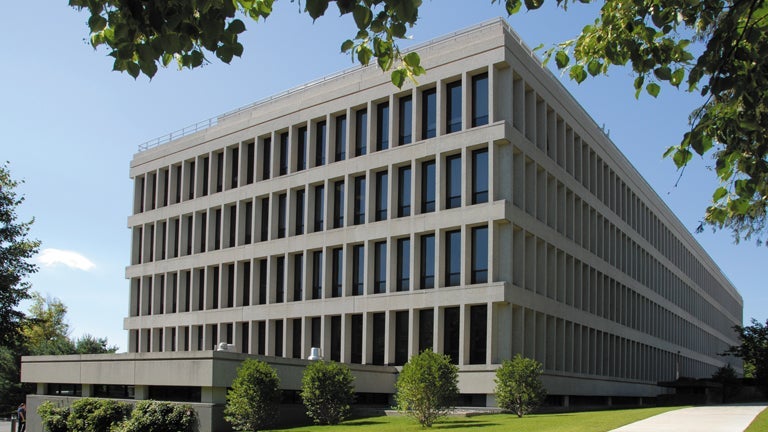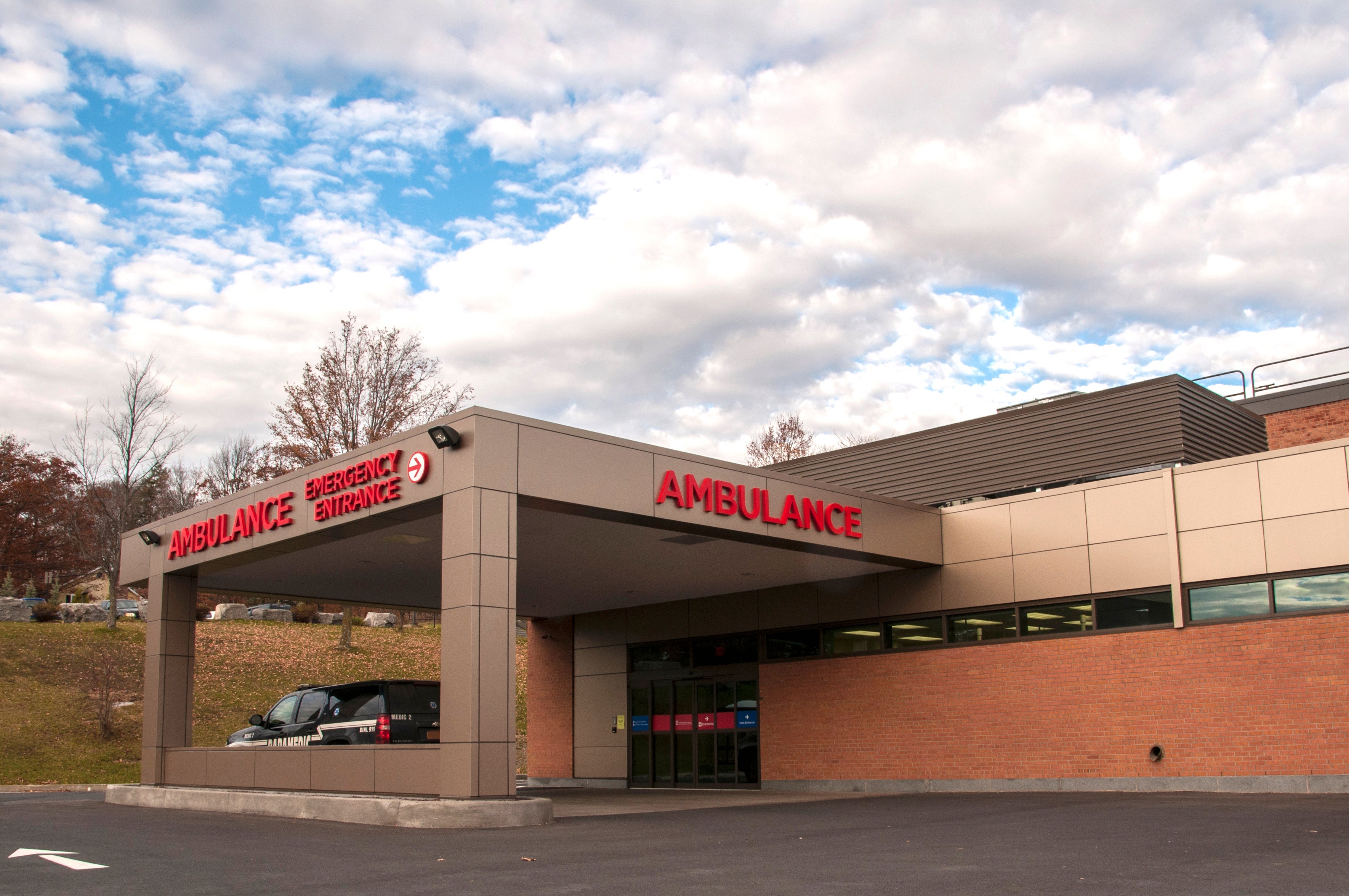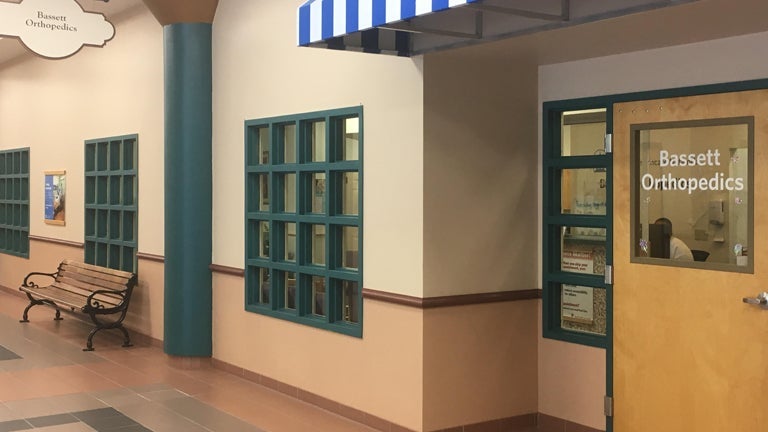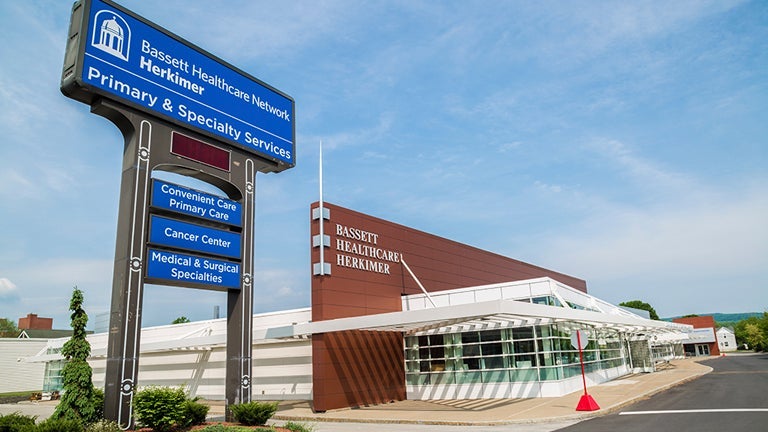Knee Pain
Why Does My Knee Hurt?
You depend on your knees for mobility. Even the slightest knee pain can turn simple actions – such as standing, walking, running, or even sleeping – into painful challenges.
Our team of knee specialists begin by diagnosing the cause of your knee pain, and reviewing treatment options with you so that you can get back to the life you enjoy.
Symptoms of Knee Problems
People with knee pain have one or more of the following symptoms:
- Inability to straighten or fully bend the knee
- Stiffness
- Swelling or deformity
- Redness that may also feel warm to the touch
- Popping or crunching sounds when moving the knee joint
- Wobbliness in the knee, or “slipping” of the knee, when standing or walking
- Sore knees, including pain on the inside of the knee, and back of knee pain
Conditions That Cause Knee Pain
Typical causes of knee pain include injuries, disorders, arthritis, and lifestyle factors.
Traumatic Knee Injuries
Typical injuries that cause knee pain include:
The ACL (anterior cruciate ligament) is essential in stabilizing your knee. ACL tears and strains are common among those who compete in sports that require sudden stops and changes in direction. These include sports such as basketball, soccer, skiing, and football.
This is one of the most common knee injuries. The meniscus (knee cartilage) acts as a shock absorber for your knee. Twisting the knee beyond its normal range during sports or other activities may tear the meniscus, resulting in severe pain, instability, and may lead to early-onset osteoarthritis.
Often referred to as “dislocated knee,” a dislocated patella (the kneecap) is most often caused by direct trauma, or when a sudden change in direction occurs when the leg is firmly planted. This is a common injury in sports such as basketball where sudden changes in direction are frequent.
This common knee injury occurs when you twist, turn, or roll your knee beyond the limit of the ligaments that stabilize the joint. A sprained knee can usually be treated at home with simple rest and ice to reduce swelling, if present. Severe knee sprains may require medical attention.
Often referred to as a “broken knee,” a fracture is caused by a traumatic impact, such as a fall, sports injury, or accident. The pain is severe and usually prevents sufferers from walking or bearing weight on the affected knee. A fracture should be treated immediately at the nearest emergency room.
Knee injuries that don’t heal properly may lead to degenerative disorders (arthritis) and additional knee problems. Always see a medical professional after experiencing a knee injury to minimize lifelong damage to the surrounding joints and muscles.
Irritating Knee Disorders
Many irritating knee problems can be treated without surgery. Examples include:
Sometimes referred to as “runner’s knee” because it commonly affects runners and other athletes. This disorder can be caused by damage or stress to the patella (the knee cap), or the tissue surrounding it. Additionally, this syndrome can result from improper tracking of the knee and/or a breakdown of cartilage caused by muscle weakness, improper footwear, flat feet, or other factors.
Sometimes referred to as “ITBS” or “IT band syndrome,” this disorder results when the iliotibial band (a ligament) tightens to the point that it rubs against the femur (the “thigh bone”). This disorder is common in distance runners, and causes pain between the hip and knee.
Sometimes referred to as “jumper’s knee” because it is often seen in volleyball and basketball players. In the knee, tendonitis is the swelling or overstretching of the patellar tendon, the large tendon that connects the knee cap to the shin bone.
Arthritic Knee Conditions
There are two major types of arthritis that can cause knee pain:
The most common type of arthritis, osteoarthritis results from normal wear and tear, overuse, and aging. Osteoarthritis breaks down the protective cartilage, causing the knee bones to rub against each other and deteriorate, which leads to pain and stiffness.
Commonly referred to as “R.A.,” this chronic autoimmune disorder inflames and thickens the knee joint’s lining (synovium). Rheumatoid arthritis breaks down knee cartilage, causing swelling, stiffness, and pain.
Learn more about common knee injuries.
Knee Pain Diagnosis
Our orthopedic specialists may begin by ordering specific imaging or diagnostic tests for your knee, including:
- X-rays
- MRIs
- CT scans
- Joint aspiration
We will also review your medical history, ask about your daily activities, and perform a detailed examination of your knee and its surrounding muscles, tendons, and joints to determine which treatment plan will work best for you.
Non-surgical Treatments
Depending on your diagnosis, our orthopedic specialists usually begin with conservative treatment options that don’t require surgery. Non-surgical options include:
- Oral medication
- Bracing
- Casting
- Splinting
- Injection therapy
- Physical therapy
- Ultrasound therapy
Another typical approach involves making lifestyle changes. We may recommend a strength, flexibility, endurance, and/or nutritional program for weight loss.
Surgical Treatments
Surgical options include:
- Fracture fixation
- Partial knee replacement, including the minimally-invasive, robotic-assisted partial knee replacement procedure available at A.O. Fox Hospital in Oneonta
- Total knee replacement
- Arthroscopy — A minimally invasive procedure where a small camera is inserted into the knee joint via a small incision. Knee arthroscopy allows for greater visualization of the knee, and repair of many types of pathology. These include lesions of the meniscus (knee cartilage), and injuries to the ligaments.
- Tendon / ligament repair or reconstruction — Certain ligaments, such as the ACL, are essential for knee stability. In the case of an ACL tear, for example, reconstruction may be done arthroscopically to restore knee stability.
Schedule an Appointment to Relieve Your Knee Pain
If you’re experiencing knee pain, contact the orthopedic team at Bassett Healthcare Network by calling (607) 547-3652. Our specialists will diagnose the cause of your pain and review treatment plans based on your preference and personal needs.
Bassett Healthcare Network’s orthopedic specialists offer noninvasive and minimally invasive knee pain treatments to relieve all types of knee pain throughout Central New York, including Herkimer, Delhi, Cooperstown, Cobleskill, and Oneonta.






